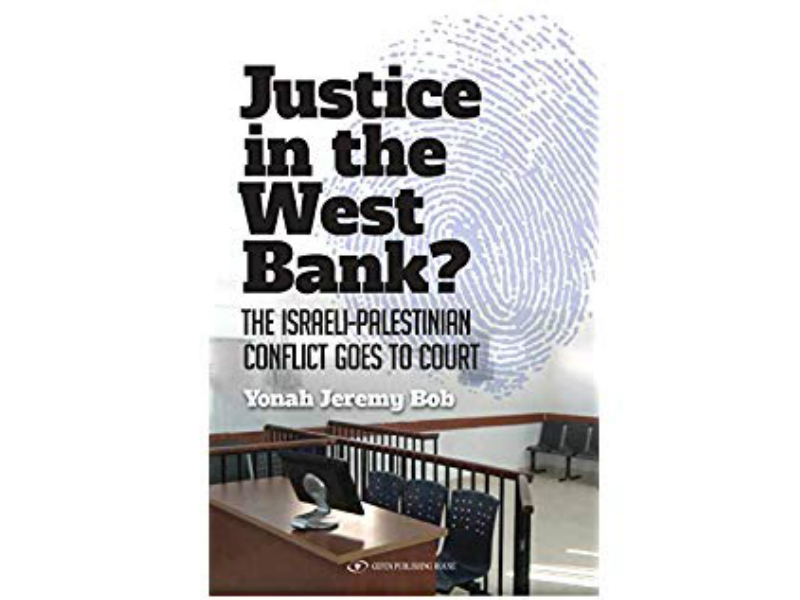One of the lesser known results of Israel’s astounding victory in the 1967 Six-Day War was that it had to create a court system in Judea and Samaria (also known as the West Bank) for a population that was almost entirely made up of Arabs who were not citizens of Israel.
For 52 years, Israel has administered the area and, with the exception of a few neighbourhoods in Jerusalem, has not annexed it. Regular Israeli courts do not have jurisdiction there and most of its laws don’t apply. Yet it is crucial to administer justice effectively, since much of the West Bank population is, to put it mildly, hostile to the state and to the Jews, and some actively commit acts of terror. Even if most people are not aware of this parallel universe within the Israeli legal system, international jurists are, and Israel cares about world opinion.
In the late 1960s, Israel set up the Judea and Samaria Military Courts to administer justice to Palestinian Arabs living beyond the Green Line (the pre-1967 borders of Israel). Jews living in the area are subject to the regular Israeli court system, as are Arabs living within the Green Line and in east Jerusalem.
Is it possible for the Israeli military to provide fair trials for Palestinians, especially for those accused of endangering, harming or killing the same Israeli citizens the military is charged with protecting? A fascinating new book by Yonah Jeremy Bob, Justice in the West Bank? The Israeli Palestinian Conflict Goes to Court, provides an insider’s look at what actually happens in these courts. (Full disclosure: Bob is my son-in-law.)
Bob, the Jerusalem Post’s intelligence, terrorism and legal affairs analyst, is uniquely qualified to write this book. He has practiced law in the United States and Israel. He has served in the legal division of the Israel Defence Forces, mostly working in the Ofer Military Court in Judea, where accused Palestinian terrorists are put on trial. Aside from his excellent knowledge of the workings of these courts, he has developed close contacts with judges, prosecutors and defence attorneys within the courts. Several of them spoke openly with him and gave him access to documents that most journalists never see.
Bob presents the views of strong defenders and sharp critics of the military courts. Both Maurice Hirsch, who served for many years as chief prosecutor, and Aharon Mishnayot, the long-time chief justice of the system, tell of impressive efforts to provide fair trials for Palestinians accused of terrorism. On the other hand, defence attorneys Merav Khoury, Gaby Lasky and Nery Ramati describe the frustrations of working in a legal system where almost every accused gets convicted and where defence attorneys cannot see some relevant documents because of security concerns. (For the most part, the lawyers who represent Palestinians in these courts are sympathetic to the Palestinian cause; they are not just working on the principle that every person is entitled to a fair trial.) Bob combines the conflicting narratives of these key actors with riveting descriptions of some of their more controversial trials.
The chapter titled, “Can the Courts Be Fair? Ideas for Reform and Views of the Future,” focuses on the thorny question of whether Israel could do better. Even the defenders of the court system admit that it is imperfect. Bob quotes Mishnayot as saying that “ ‘no one would disagree’ that Israeli civilian law is more advanced, liberal and based on more updated legal thinking than the Jordanian law that applied to the West Bank dating back to 1967, some of which is still used in the IDF courts today.” Mishnayot shared some modest suggestions with Bob for improving the system that he administered for many years. On the other hand, Khoury (not surprisingly) argues that, “The best solution is obviously to end the occupation and to completely eliminate this entire disgraceful system.”
Israel’s military court system in Judea and Samaria is a microcosm of all the problems of administering areas filled with unfriendly non-citizens. We learn that some due process is extended even to Palestinians accused of heinous crimes. But Bob does not shy away from vexing problems, such as administrative detention and putting young children on trial. (While administrative detention – jailing suspects who have not even been charged, let alone convicted – offends our most basic sense of justice, Canadians may recall that in 1970, our own government used this and other undemocratic measures to deal with FLQ terror threat, which fell far short of the threats Israel faces.)
READ: CHILDREN’S BOOK EXPLORES WHAT IT MEANS TO BE BRAVE
Bob may be one of the last journalists who strives for objectivity, and in my analysis, he managed to write this entire book without favouring any one side. Justice in the West Bank? doesn’t advocate one position. Instead, it provides crucial information to readers who want to formulate their own opinions about Israel’s continued presence in Judea and Samaria. Reading the book brings to life the complexities involved – a much more important contribution, indeed.
